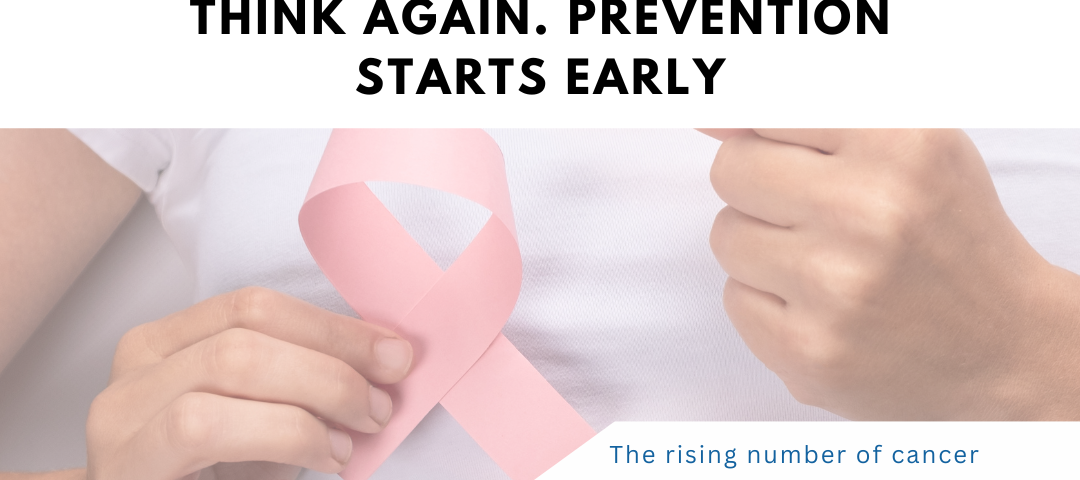When we think of cancer, we often imagine it affecting older people. But in recent years, doctors are seeing a concerning trend—cancer cases are rising in young adults, even those in their 20s and 30s.
This shift is more than just a statistic. It’s changing the way we look at health, lifestyle, and cancer prevention for the next generation.
Let’s understand why it’s happening—and more importantly, how we can stay a step ahead.
What the Numbers Say
Recent studies show a significant increase in early-onset cancers globally. Some of the most common cancers being diagnosed in young adults include:
- Breast cancer
- Colorectal cancer
- Cervical cancer
- Thyroid cancer
- Testicular cancer
- Blood cancers (like leukemia and lymphoma)
In India too, oncologists are reporting younger patients walking into clinics more frequently than a decade ago.
What’s Causing This Spike?
While cancer is complex and rarely caused by one single factor, here are some key contributing reasons behind early-onset cancer:
1. Lifestyle & Diet Changes
- High intake of processed foods and red meats
- Excess sugar and refined carbs
- Low fiber intake
- Sedentary lifestyle and long screen hours
2. Obesity & Metabolic Disorders
Weight-related issues are linked with a higher risk of cancers like colorectal, breast, and endometrial.
3. Environmental Toxins
Daily exposure to polluted air, plastic toxins, pesticides, and endocrine-disrupting chemicals may be triggering DNA damage.
4. Delayed Screenings
Young adults often skip regular checkups or ignore symptoms due to busy schedules or the belief that “I’m too young for cancer.”
5. Genetics and Family History
Inherited mutations like BRCA1/BRCA2 increase risks of breast and ovarian cancers at a younger age.
What Can You Do to Lower Your Risk?
Here’s how to prevent cancer in young adults by focusing on early lifestyle interventions:
1. Eat Clean, Stay Lean
- Choose whole grains, fruits, veggies, and healthy fats
- Avoid packaged snacks, sugary drinks, and excessive alcohol
2. Exercise Regularly
Even 30 minutes of daily movement (walking, yoga, cycling) reduces inflammation and boosts immunity.
3. Don’t Delay Screenings
If you have family history or experience symptoms like abnormal bleeding, lumps, or persistent fatigue—get it checked.
4. Manage Stress
Chronic stress can weaken your immune system. Try mindfulness, journaling, or speaking to a counselor.
5. Limit Harmful Exposures
- Store food in glass, not plastic
- Use clean skincare and household products
- Don’t ignore indoor air quality—ventilate rooms
Signs Young Adults Shouldn’t Ignore
Even if you’re young, be alert to:
- Unexplained weight loss
- Persistent fatigue
- Unusual lumps or pain
- Blood in stools or urine
- Irregular periods or discharge
- Skin changes or moles that grow
Listen to your body—it’s talking.
Final Thoughts: Prevention is Possible
The rising number of cancer cases among young adults is alarming—but not hopeless. The power lies in awareness, timely action, and healthier choices. By changing the way we live today, we can reduce the risk of disease tomorrow.
Whether you’re 25 or 35, now is the time to put your health first.
Need Expert Guidance?
If you’re concerned about your risk factors or want help planning a healthier lifestyle, our clinic offers personalized cancer risk assessments and preventive care. Book an consultant!





